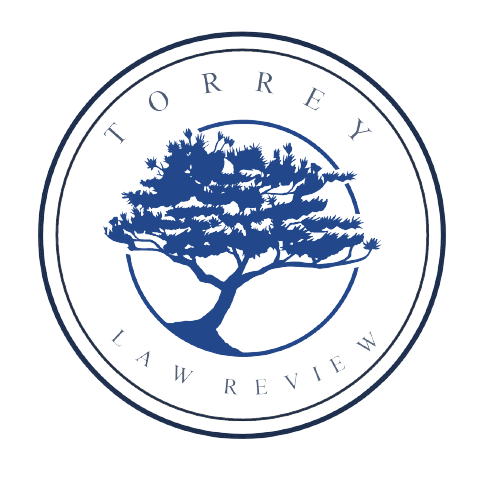Bob Jones University v. United States
Click on the PDF link below for the full version including footnotes.
Introduction
Freedom of religion and the elimination of racial discrimination are two major public policies in the U.S. However, issues can arise when we consider the implications these two have on each other. For example, should the U.S. grant tax-exempt status to an organization that practices religiously based racial discrimination? This question is addressed in Bob Jones University v. United States.
Facts
Evangelist Dr. Bob Jones Sr. established Bob Jones University in 1927 with the main objective of maintaining the faith of students throughout their college experience. However, Bob Jones University barred the admission of black students until 1971 and held the view that interracial marriage and dating were forbidden by the Bible. In 1970, a District Court found that the IRS cannot provide tax exemptions to universities that discriminate based on race in their admission process. The Internal Revenue Service (IRS) notified Bob Jones University that per the District Court’s ruling, the IRS would challenge the University’s tax-exempt status. Possibly in response to this, Bob Jones University, which had been granted tax-exempt status as a religious private school, started admitting married Black students who were “married within their race.” Despite this, Bob Jones University maintained the policy prohibiting students from practicing interracial dating and intimacy, advocating for interracial intimacy, or being a part of a group that advocates for interracial intimacy. The IRS moved to revoke Bob Jones University’s tax-exempt status, stating that Bob Jones University practiced racial discrimination.
Legal Background
Bob Jones University initially filed their lawsuit in 1971 in the U.S. District Court for the District of South Carolina in order to block the IRS from revoking their tax-exempt status. The District Court ruled in favor of Bob Jones University, stating that the “revocation of the University’s tax-exempt status exceeded the delegated powers of the IRS, was improper under the IRS rulings and procedures, and violated the University’s rights under the Religion Clauses of the First Amendment.” The IRS was ordered to pay Bob Jones University the $21 tax refund they had claimed. However, this decision was reversed by the U.S. Court of Appeals for the Fourth Circuit in a divided opinion. The Court of Appeals found that in order for something to be “charitable,” it must be in compliance with public policy. The court also found that the IRS had the statutory authority to revoke the tax-exempt status of the University, and found that there was no First Amendment violation. The Supreme Court granted certiorari.
Holding & Reasoning
The Supreme Court upheld the Fourth Circuit in an 8-1 decision. The majority opinion, written by Warren E. Burger, reinforced the IRS’s decision to revoke Bob Jones University’s tax-exempt status because it violates public policy and, thus, cannot be eligible for tax exemption. Citing primarily Brown v. Board of Education, the court identified that eradicating racial discrimination had become a core public policy. The court then identified that, because tax exemption exists to promote private institutions participating in activities supported by tax revenues already, an organization cannot be defined as charitable if it goes against public policy and tax-supported activities. The Court summarized that, because eradicating racial discrimination can be identified as a public policy, any private organization practicing racial discrimination can neither be considered charitable nor align with the intent expressed in § 501(c)(3), and is therefore ineligible for tax exemption status. The Court also stated that, although Bob Jones University is allowed to hold their religious beliefs under the Free Exercise clause, the IRS is free to deem these beliefs uncharitable if they go against the United States’ public policy, as the government is under no obligation to essentially endorse these beliefs with tax exemption. Finally, to address concerns about the lack of specificity about racial discrimination in IRC § 501(c)(3), the Court deemed that this is not a concern because if Congress had any objections to the law’s construction, they would have intervened and changed the law.
Justice Rehnquist dissented. Dissenting, Rehnquist expressed his concern with the ambiguity in IRC § 501(c)(3) and argued that it was Congress’ prerogative to write a specific anti-discrimination policy into the IRC, not the courts’. Despite this, Rehnquist did agree with the majority that Congress may rightfully determine that organizations engaging in racial discrimination lack a charitable purpose.
Analysis
The case at hand was correctly decided. The Justices determined that, because conquering racial discrimination is such a fundamental policy in the U.S., the fact that the First Amendment protects Bob Jones University’s racist views is in no sense an apt justification for a government service such as the IRS to endorse organizations that are practicing racial discrimination with a tax exemption. Despite the ambiguity in § 501(c)(3) that Rehnquist addressed in his dissent, it’s fairly clear to see that Bob Jones University was indeed working against the creation of a peaceful and prosperous community based on U.S. public policies. However, despite how obvious it may seem, this ruling is extremely important when considering the precedent it set going forward. One of the issues with the First Amendment has always resided in the question, can the United States deny certain public benefits to organizations that hold religiously based views that clash with the ideals of the United States? With the resolution of this case, it’s going to be hard to answer this question with anything but a yes. This case makes it clear that the Constitution may protect individuals’ and organizations’ right to free exercise of religion and freedom of speech, but if said views contrast with U.S. public policy and are harmful to the community or society they exist in, then the government is under no obligation to (and in this author’s opinion should not) endorse said organizations with benefits such as tax exemption.
